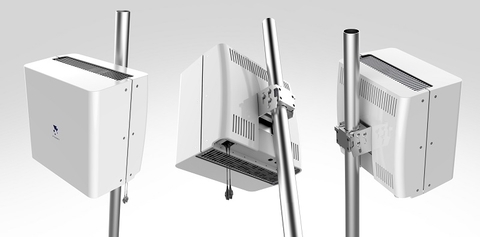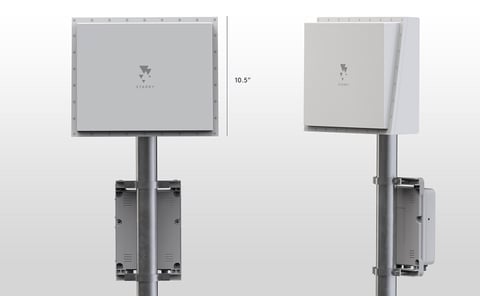Startup Starry said it will expand into two new markets beyond its Boston proving grounds, announcing it will launch a beta service in Los Angeles and Washington, D.C., this month. “Internet service will be available initially in select areas and become more widely available as Starry expands its presence in both markets,” the company said in a release.
The company, a Fierce 15 winner, added that it would expand to 14 additional markets over the next year including New York, Cleveland, Chicago, Houston, Dallas, Denver, Seattle, Detroit, Atlanta, Indianapolis, San Francisco, Philadelphia, Miami and Minneapolis.
Starry’s full press release is available at the end of this article.
The news is noteworthy as it will allow Starry to challenge some of the nation’s largest wireline internet providers in some of their biggest markets. For example, Verizon is a major ISP in DC and Boston, while Comcast supplies services in Boston and LA, and AT&T is active in LA also.
Starry also offered some details about its service, which it initially launched in Boston near the end of 2016. Specifically, Starry said it will use “pre-standard 5G, point-to-multipoint fixed wireless technology” operating in millimeter wave spectrum to transmit signals via its “proprietary active phased array technology” up to 2 kilometers. Transmissions will travel from the company’s “Starry Beam” base station to the company’s “Starry Point” receivers installed on homes or apartment buildings. That receiver would then connect to a “Starry Station” Wi-Fi hub that would deliver services to actual customers. Importantly, Starry said its technicians would install the service, providing “white-glove installation” that would include Wi-Fi performance tests throughout customers’ homes.

Starry Beam

Starry Point
The company said its service would offer speeds up to 200 Mbps at $50 a month.
Starry didn’t immediately answer questions from FierceWireless about the company’s technology and costs, including what spectrum bands it will use and how much its installations would cost, as well as the costs of its base station and receivers.
“We take the privilege of being in your home and being your family’s ISP very seriously,” Starry CEO Chet Kanojia said in a release from the company, in a nod to the FCC’s decision to roll back its net neutrality guidelines. “From the way our customer care and installation team interacts with you, to our pledge to never throttle, block, or pick and choose what content you access, when we pledged to build a better internet, we meant it.”
Starry’s rollout efforts are noteworthy as Verizon and AT&T disclose their own fixed wireless plans. AT&T is deploying fixed LTE services across a number of rural locations in the United States, while Verizon has set its sights on the deployment of a fixed 5G service later this year.

